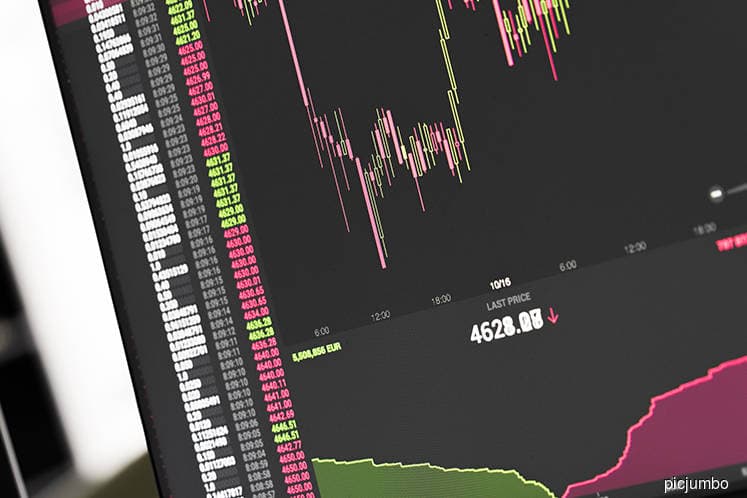
This article first appeared in The Edge Financial Daily on March 25, 2019
KUALA LUMPUR: Since the reform and opening up of China in the 1980s led by its late paramount leader Deng Xiaoping, the country’s Guangdong province has been deepening its business cooperation with nearby Hong Kong and Macau by complementing each other.
As the country’s economy grew by leaps and bounds, places like Shenzhen, a major city in the Guangdong province now, was one of the first to be established as a special economic zone by the government.
Over the years, Shenzhen has transformed from just a fishing village — where its Shekou area, located just across the Shenzhen Bay from Hong Kong’s Yuen Long, was the starting point of the infamous 4km swim that turned deadly for many who tried to escape to the then city-state — into what is known today as China’s Silicon Valley, with its tremendous growth pace dubbed the “Shenzhen Speed”.
The city’s economy was worth 270.12 million yuan in 1980, the year it was established as a special economic zone. Last year, it hit 2.42 trillion yuan. In contrast, Hong Kong’s gross domestic product (GDP) came in at HK$2.85 trillion that year.
But slowing growth rate is creeping up behind Shenzhen’s astronomical GDP. And the city is not the only one facing this — this trend is spreading across China.
To make further breakthrough, the Chinese government released a development plan in February this year to outline Guangdong province’s future direction, where it lumped Hong Kong and Macau in with the province and named it the “Greater Bay Area” (GBA).
Specifically, the GBA will comprise Hong Kong, Macau and nine municipalities in Guangdong — namely Guangzhou, Shenzhen, Zhuhai, Foshan, Huizhou, Dongguan, Zhongshan, Jiangmen and Zhaoqing. Covering a total area of 56,000 sq km, the GBA had a combined population of about 70 million as at end-2017.
Under the GBA’s development plan, the China government hopes future economic growth in the region could leverage on the unique advantages each city has. For example, Shenzhen has clear technological prowess, while Hong Kong’s strength lies in its financial markets, as well as comprehensive logistics and legal systems, while Macau plays a strategic role to help strengthen China’s relationship with Lusophone countries. The other eight cities, meanwhile, offer advance industrial manufacturing capabilities.
The GBA’s combined GDP was 10 trillion yuan in 2017, of which 45% was contributed by Hong Kong and Shenzhen.
Shenzhen, incidentally, is also the location of the new headquarters of China’s tech giant, Tencent Holdings Ltd. The Tencent Binhai Mansion, as it is called, was built at an estimated investment of US$600 million in the Shenzhen High-Tech Industrial Park.
One of the world’s largest social media companies today, Tencent’s social media application, WeChat, together with its e-wallet WeChat Pay, has almost 1.1 billion users. The company is now focusing more on cross-border payment financial services to facilitate interactions and transactions within and beyond the GBA.
In an interview with The Edge Financial Daily, Tencent’s international business group general manager Norman Tam said WeChat Pay supports cross-border payments that allow users to make retail payments beyond China.
“The transactions will be converted into renminbi based on the real-time rate. Today, WeChat Pay services are available in more than 40 markets. For cross-border payments, WeChat Pay now supports 16 currencies.
“Recently, WeChat Pay HK has also introduced support for cross-border payments, which allow Hong Kong travellers to pay for products and services using their WeChat Pay HK wallets at selected merchants in mainland China. WeChat Pay HK will then automatically convert the transaction amount into Hong Kong dollars,” he said.
Tam said the cross-border mobile payment service for WeChat Pay HK users now covers nearly one million merchant outlets in mainland China.
“This is a breakthrough that will encourage interactions between users and businesses in mainland China and Hong Kong. Therefore, while mainland China and Hong Kong have two different currencies, WeChat Pay has a synergised mobile payment system that can overcome the cross-border payment challenges,” he said.
On a recent media trip organised by Tencent, reporters were taken to visit certain places in the GBA to get a feel of the region. They were also shown the 2.3 billion yuan China Spallation Neutron Source (CSNS), the first neutron source facility in developing countries, and the fourth in the world.
The CSNS is a powerful research platform for fundamental research and high-tech development in fields like materials science and technology, physics, life sciences, chemistry, resources and the environment, according to the Chinese government.
The facility’s manager, Professor Chen Hesheng, said CSNS is one of China’s largest science and technology infrastructure and is expected to be one of the main facilities in GBA to drive scientific findings.
“Our facility basically enables researchers to dissect matter to a deeper level, at the neutron level, allowing them to gain more insights into the material they are dealing with,” he said.
“We have an independent committee to evaluate which projects we can dive into. It is usually free of charge, unless the project owner wants the data obtained through this facility to be confidential,” he added.
The Chinese government hopes to duplicate Shenzhen’s success within the GBA by establishing Hengqin, an island in Zhuhai, as a special economic zone as well.
Only time will tell whether Hengqin could emerge as another Shenzhen, for both cities, despite being in the same country, has and will continue to be developed in an entirely different economic backdrop.
The same goes for GBA, as the country is no longer led by reformists like Deng, and economic reform measures implemented in the past have been seen rolled back since the Hu-Wen administration, a situation that has not really changed under the current Xi-Li administration.